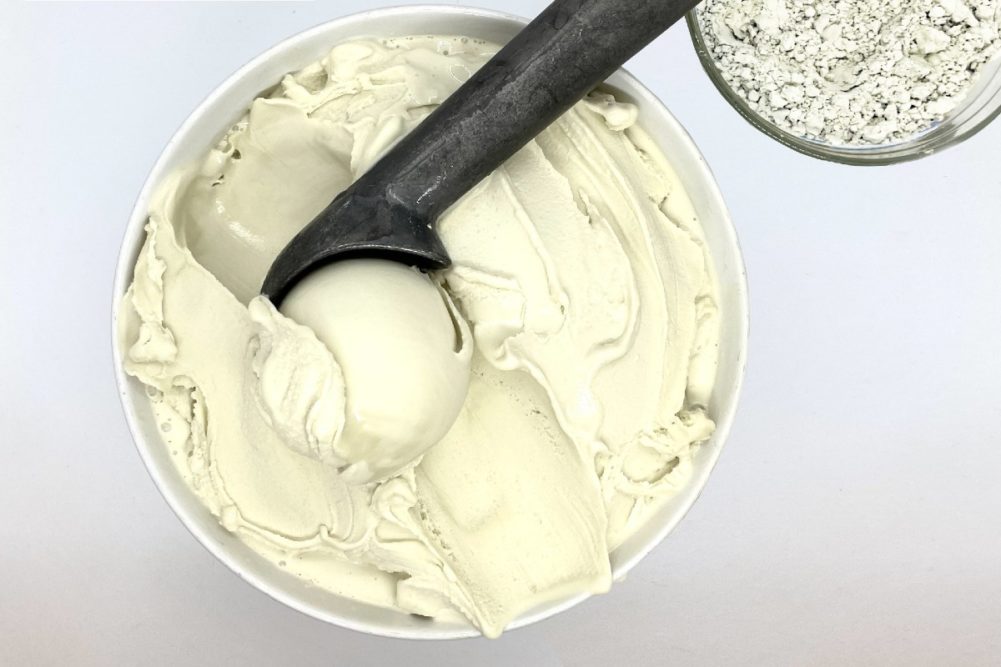WAGENINGEN, NETHERLANDS – Sustainable food tech company Sophie's BioNutrients collaborated with the Danish Technological Institute (DTI) to make a chlorella-based, vegan-friendly ice cream.
The plant-based frozen dessert was produced using a dairy-free chlorella protein concentrate developed by Sophie’s BioNutrients, which grows microalgae to produce protein.
A B2B food technology company that operates between Singapore and the Netherlands, Sophie’s BioNutrients shared that its new product contains “a complete nutrition profile, and in combination with other functional ingredients mimics natural ice cream texture,” adding that the frozen dessert can be made in several popular ice cream flavors.
The company described its process for producing its microalgae flour as involving natural cultivation of Chlorella vulgaris, which is harvested within three days in a protected environment. It said the microalgae strains used also are US GRAS and European Food Safety Authority approved for use as food ingredients or supplements.
Developing the vegan-friendly ice cream involved ingredients being screened by DTI, which also performed application tests. Per Sophie’s BioNutrients, a 1 oz serving of the chlorella ice cream could potentially contain double the recommended daily intake of B12, and chlorella is a good source of iron.
Eugene Wang, cofounder and chief executive officer of Sophie's BioNutrients, said the company is “incredibly excited” about the development in allergen-free foods.
"Microalgae is one of the most nutrient-rich and versatile resources on the planet,” Wang said. “Today we have shown another facet of the unlimited possibilities this superfood can offer – a dairy and lactose-free alternative to ice cream that, thanks to microalgae, offers a higher nutrition content than most available dairy-free alternatives.”
DTI’s director of food technology, Anne Louise Dannesboe Nielsen, said the team at the institute is eager to further unlock microalgae’s potential.
"Microalgae is definitely part of the future,” she said. “It is a sustainable ingredient with a lot of potential in multiple food applications.”

